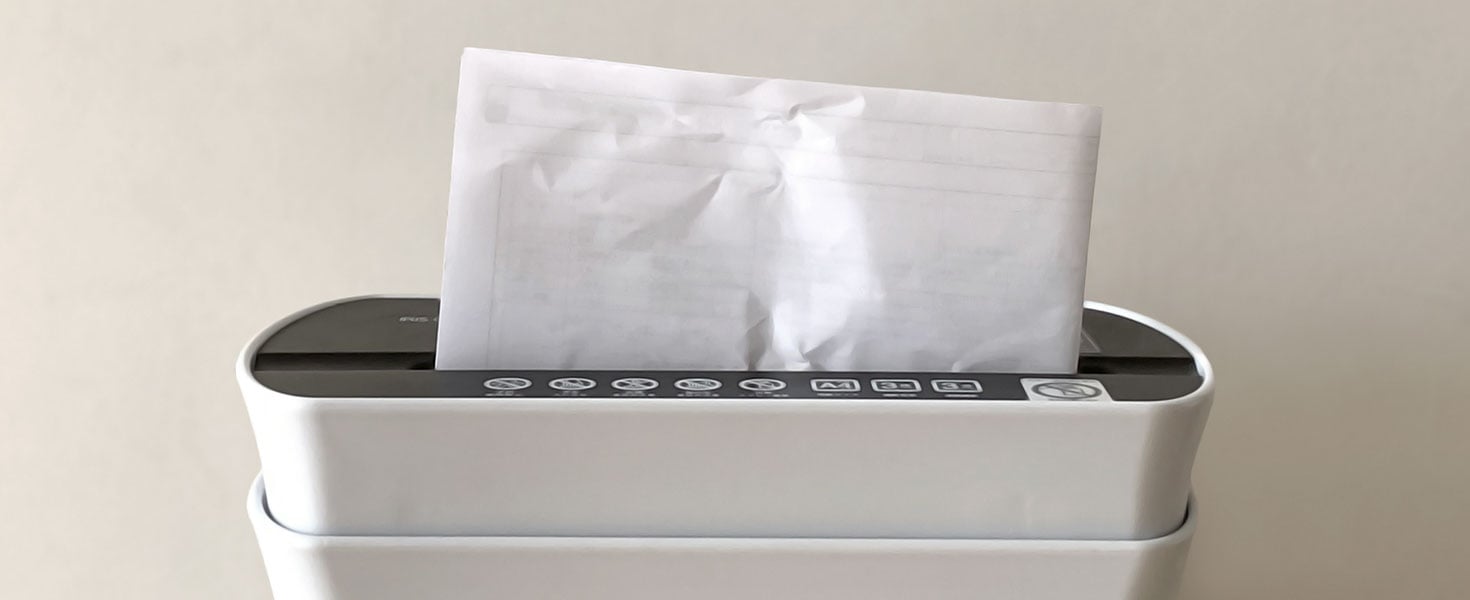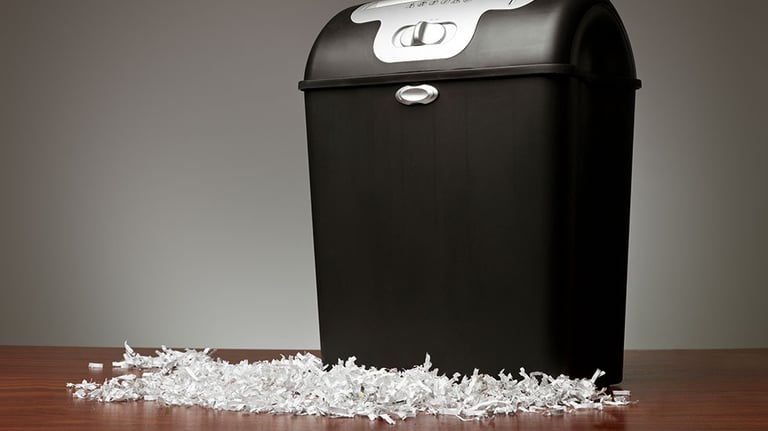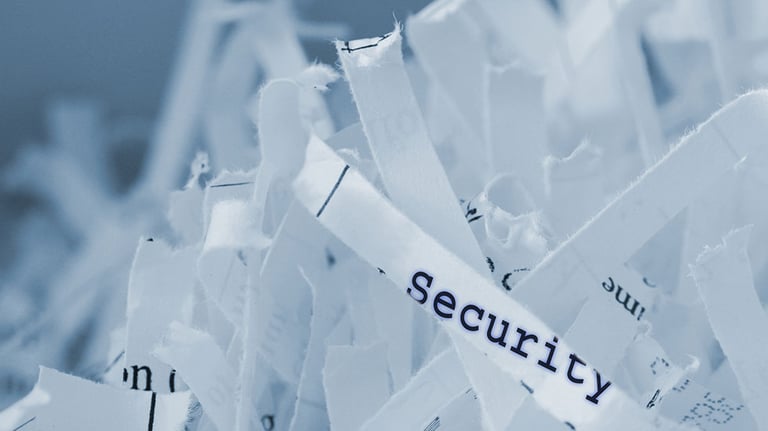Do You Know When To Shred Important Documents
Criteria and tips for shredding


If your overstuffed filing cabinet is getting out of control, or that stack of mail on the counter is calling your name, it’s probably time to shred some of your papers. However, you don’t want to go in blind and accidentally zip through a significant tax document. Here is a breakdown of some of the most typical important documents and when it’s safe to shred them.
Because your documents contain a wealth of personal information, shredding is safer than just throwing old files away. However, that pile of papers in your filing cabinet might contain items worth keeping for a while longer. Use this set of criteria to know when to put your shredder to work.

Documents to shred right away
- Junk mail
- Financial offers, such as refinancing services or credit card advertisements
- Transaction receipts from ATMs
- Notices for bills paid in full
- Recent purchase receipts
- Prescription drug labels
- Warranty expiration notices
- Canceled checks that aren’t tax-related
Documents to shred after 30 days
- Checks deposited via mobile app
- Pay stubs
Documents to shred after a year
Keeping certain documents for annual comparison can be helpful. Additionally, you can use these documents when seeking qualification for a loan or contesting the balance due on a bill. If you shred these documents too soon, you can often access them online.
- Bills—utility, cable, cell phone, etc.
- Bank and credit card statements
- Medical bills you paid without disputing

Documents to shred after seven years
You should apply the seven-year rule to all documentation pertaining to your taxes. The IRS can audit certain tax items up to seven years after the fact. After seven years, you can safely shred the following:
- W-2 forms
- Records of tax deductions
- Tax-related receipts (keep any receipts from home improvement projects)
- Tax-related canceled checks
Essential documents you should always keep
The following documents are always essential to have and retain. To avoid losing track of your most important documents, organize them by category. Use your newly sorted papers to create a simple filing system that you can update as needed. Keep these crucial documents in a locked safe or filing cabinet.
- Social Security cards
- Birth certificates
- Adoption papers
- Tax returns
- Death certificates
- Marriage or Divorce papers
- Citizenship papers
- Vehicle titles (as long as you own the vehicle)
- Home deed (as long as you own the home)
- Disputed medical bills (until you reach a resolution)
It’s also important to keep home improvement receipts for homes you own. Save them until you sell your property in case the expenses affect your capital gains taxes.
When is it safe to shred important documents?
After reading this guide, you may feel ready to immediately put your home or office shredder to work. While personal shredders are inexpensive and easy to use, they don’t provide a secure shredding method. A motivated thief can rebuild legible documents from a grocery bag of recently shredded paper.
Conversely, a certified shredding service offers a top level of protection for your documents. Since these services handle massive amounts of paper daily, your documents will be impossible to put back together. Additionally, you can select a provider that recycles all shredding to ensure your shredded materials do not fall into the wrong hands. Plus, it’s environmentally friendly.
If you can’t hire a shredding service, another option is to burn your documents. However, be careful when doing so, especially in arid regions.
If you have yet to create a filing system or shred a single document, you don’t have to be intimidated. Using this guide, you can start by shredding the most dispensable documents and work your way down.
